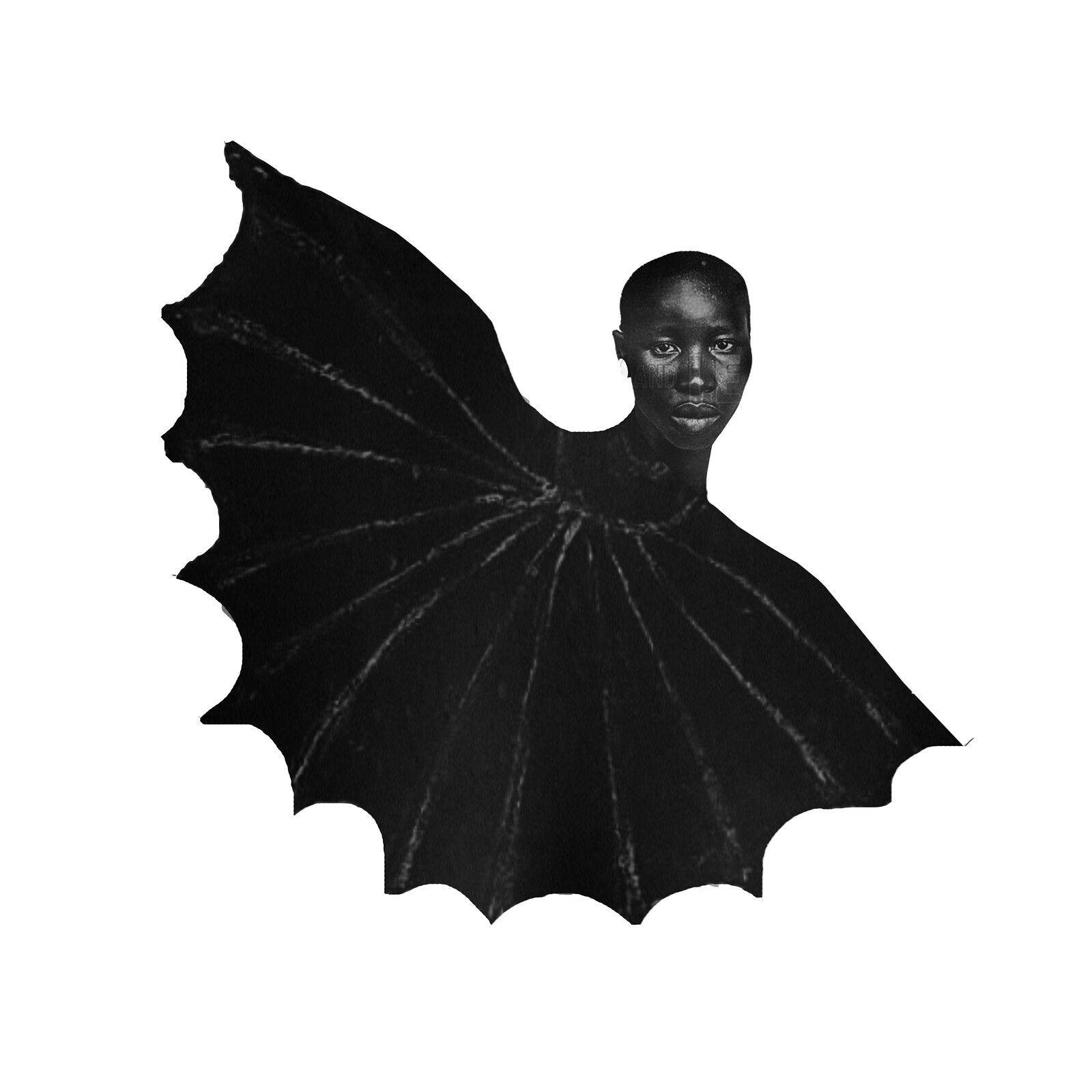How did you feel when you come out of the wilderness
September 23–November 21, 2021
Kongens gate 2
7011 Trondheim
Norway
Hours: Thursday–Friday 2–6pm,
Saturday–Sunday 12–4pm
T +47 485 00 100
office@kunsthalltrondheim.no
Frida Orupabo’s archive is wayward; it is “errant, fugitive, recalcitrant, anarchic, willful, reckless, troublesome, riotous, tumultuous, rebellious and wild,” in the way African American Studies scholar Saidiya Hartman uses the term. Hartman’s critique of official bodies of knowledge, both with their power and authority as well as with their enunciating silences and knowing ellipses, finds its artistic counterpart in Orupabo’s work. Working in physical and digital collage, Orupabo combs mostly Black visual culture for fragmented counternarratives to things said too often and things not said often enough, or not said at all.
On her Instagram account @nemiepeba, Orupabo posts many of these images as well as short videos. Salvaging these fragments of historical records, both recognized as such and buried in the dispersed depths of the internet, she assembles them into a new repository in the technological grid that is Instagram. On the feed, they take on a life of their own, incidentally critiquing the coded inequity and monopolized attention of social media.
In recent years, Orupabo’s collages have expanded into metal sculptures with images from her collection printed on them as well as videos. In the exhibition at Kunsthall Trondheim, Orupabo presents an entirely new body of works, including photographic prints of digital montages, a wallpaper of a woman opening a curtain while peering back titled Turning (2021), and a wooden sculpture in the shape of a bed with a woman lying on it and a dog beside her on the ground. The latter is titled A Litany for Survival (2021), after Black feminist poet and activist Audre Lorde’s poem. Installed next to it is a looped video of Polish cabaret singer Violetta Villas performing the song “Free Again.” Seen together, the works distil the discrepancy between the white performer asserting her position as an independent woman in the 1970s who, after a breakup, is free again and ready to have a party, and the continued struggle for freedom of Black people, let alone women, expressed in Lorde’s vision. The resting figure on the bed is also a reference to writer Ayi Kwei Armah, who stresses the importance of sleep after traumatic events to survive. Armah warns of being held asleep, or actionless, through what he refers to as cultural or intellectual anesthetics.
Orupabo’s works are curative in the sense that they salvage possible narratives that aren’t given room elsewhere, opening up a space for them to persevere. But repair can be followed by more violence, and it can also be a form of re-appropriation if it assumes that something broken can be fixed. Colonialism and slavery cannot simply be repaired and forgotten. As the pins in Orupabo’s collages show, the cracks and cuts will remain. Suturing can be an act of resilience, an even so, a despite of, an and still. But repair necessitates continued care.
Curator: Stefanie Hessler, director Kunsthall Trondheim
Assistant curator: Kaja Grefslie Waagen
The exhibition has a satellite presence at Heimdal Upper Secondary School, where two of Orupabo’s new works and a public program are presented in collaboration with the arts organization Transcultural Arts Production (TrAP) and the project Nøkkel til byen (Key to the City) for young people. The aim of this satellite is to reach new audiences and discuss important issues of social justice.
Frida Orupabo has created a new edition especially made for the exhibition. The print titled Just You ’N Me (2021) is available for purchase at Kunsthall Trondheim and in its online shop.
Orupabo’s first full book with new texts by writers and curators Stefanie Hessler, Lola Olufemi, and Legacy Russell, copublished by Kunsthall Trondheim and Sternberg Press, is launched during the exhibition opening and can be purchased on site and online.
Thank you for the generous support to: Galerie Nordenhake Berlin|Stockholm|Mexico City; Nicola Vassell Gallery, New York; Stevenson, Amsterdam, Cape Town, and Johannesburg; The Museum of Contemporary Art Kiasma / The Finnish National Gallery; Fritt Ord; Kulturrådet; Heimdal Upper Secondary School; Transcultural Arts Productions (TrAP); Trondheim kunstmuseum.
Kunsthall Trondheim is supported by the Norwegian Ministry of Culture, Trondheim kommune, and Trøndelag fylkeskommune.


